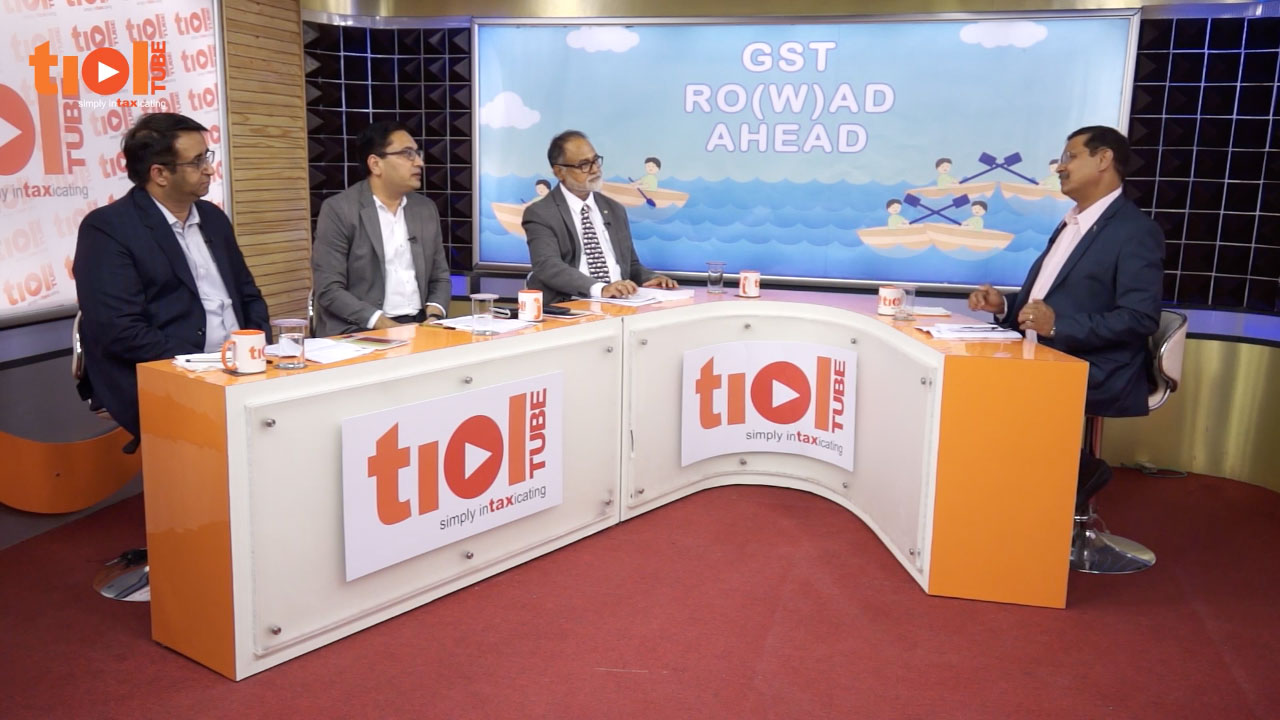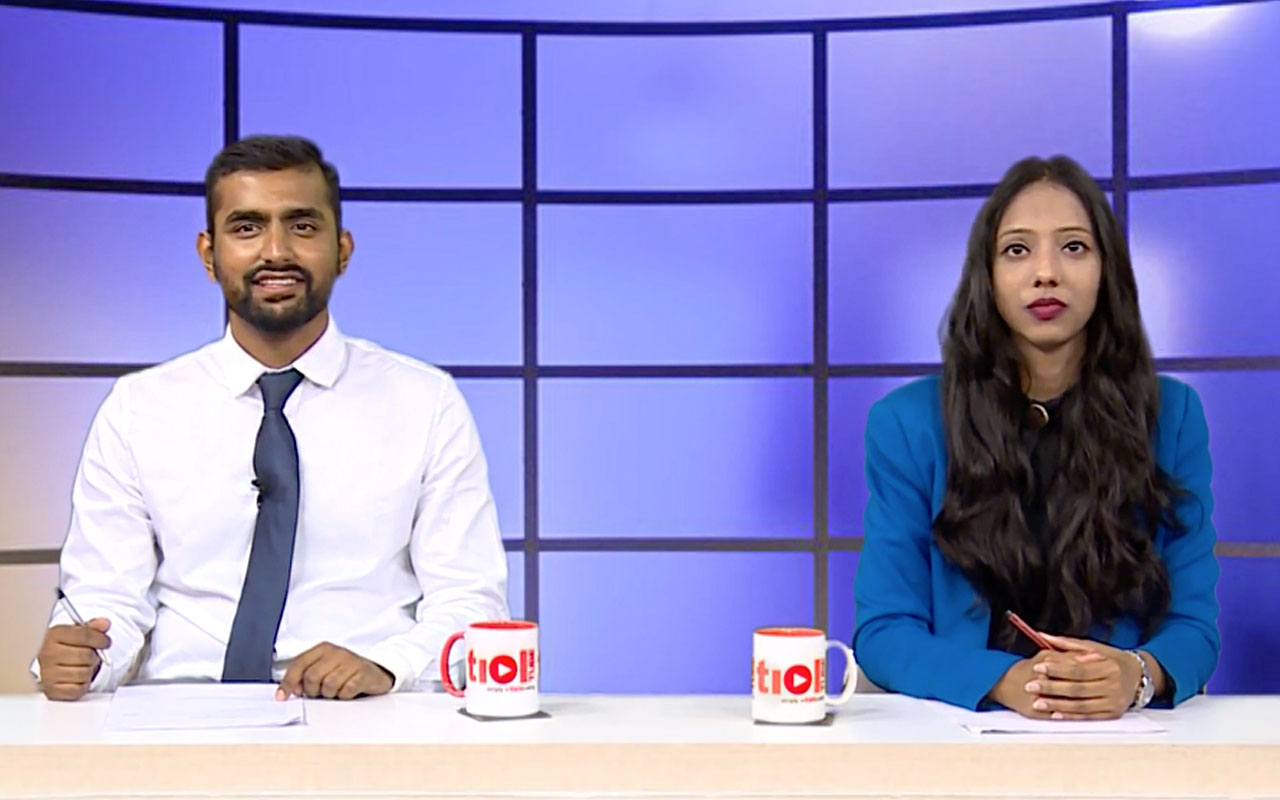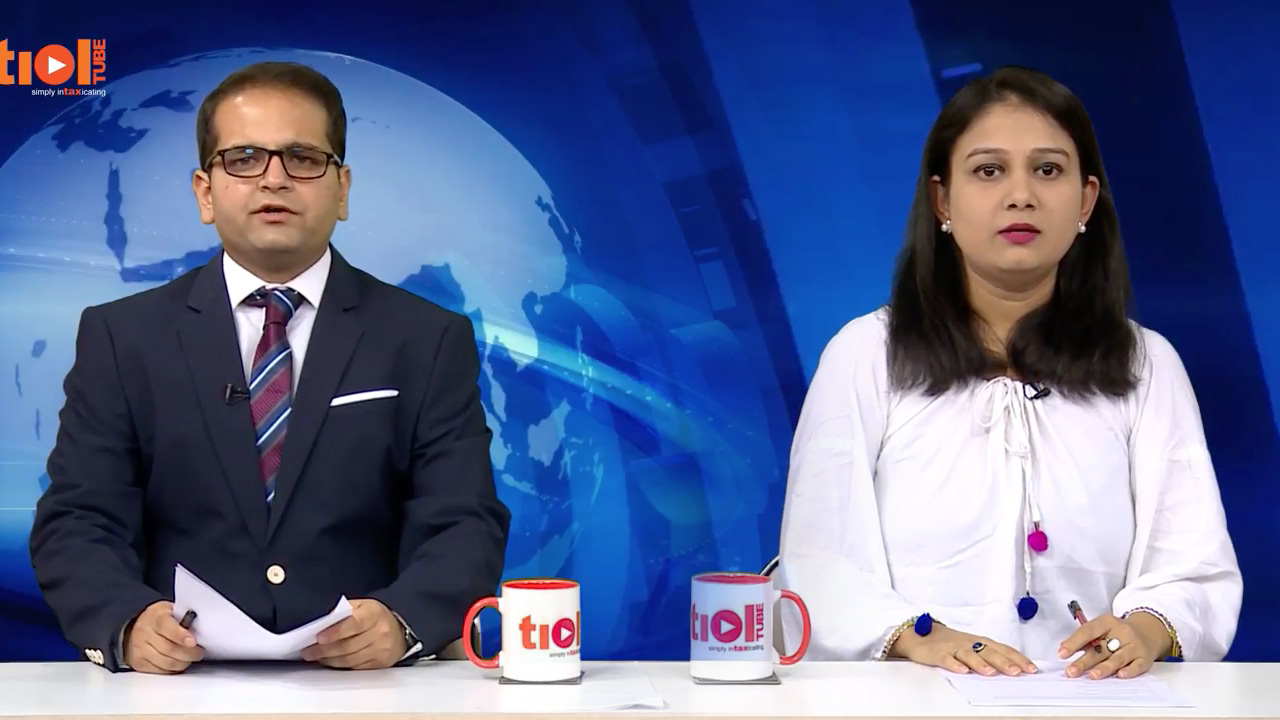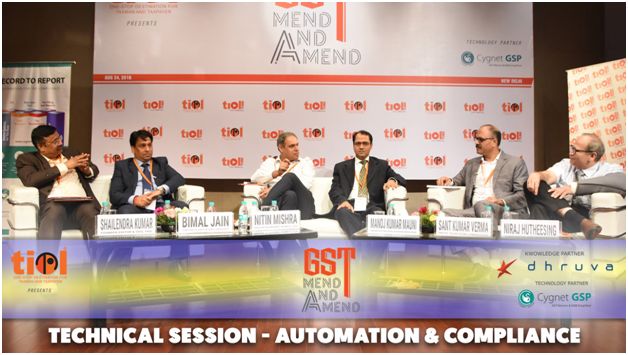|
SERVICE TAX
2018-TIOL-3067-CESTAT-DEL
Varenyam Motors Vs CCE & ST
ST - The assessee is engaged in the business of trading and servicing of two wheeler motor vehicles as an authorized dealer of Hero Honda Motors - It is covered under the category of 'Authorised Service Station' and 'Business Auxilliary Service' - The Revenue took a view that assessee availed inadmissible credit on grounds that as per Rule 6 (1) of CCR, credit is not admissible on such quantity of input services which are used in providing exempted or non-taxable services - Furthermore, the assessee failed to maintain separate account for inputs used in providing non-taxable services and intended for use in providing output services on which duty is payable - SCN was issued demanding reversal of Cenvat credit on input services for 'trading goods' along with penalty under section 78 of the Finance Act, 1944.
Held: On trading activity which was not even considered even as exempted service prior to 01/04/2011, no Cenvat credit is available on any 'input service' attributable to the trading activity at material time - This principle follows from the case of Mercedes Benz India Pvt. Ltd. vs. CCE, Pune affirmed by the HC of Mumbai and followed in Commissioner of Service Tax, Delhi vs. Machine Tools India Pvt. Ltd - Hence, the order challenged is upheld - With regard to penalty, the assessee resorted to section 80 of the Finance Act, 1994 for deletion of penalty - Hence, the assessee is to pay 25% of imposed penalty : CESTAT (Para 1, 5, 7, 8, 9, 10)
- Appeal dismissed: DELHI CESTAT
2018-TIOL-3066-CESTAT-BANG
Canara Bank Vs CCE & ST
ST - The assessee is a banking company and a body corporate, conducting their operations in India - It was alleged by Department that the assessee was acting as agents for Reserve Bank of India and were receiving agency commission at the rates notified by RBI, on per transaction basis, in respect of receipts or payments made, on behalf of Government of India - It was alleged that the services provided by assessee to the RBI amounted to providing a taxable service under the Banking and other Financial Services which was taxable from 10.09.2004 - There is no ambiguity with reference to the Notfn; therefore, the submission of departmental representative for strict interpretation is not warranted - There is no doubt that the exemption given vide Notfn 22/2006-ST is applicable to RBI - Under Section 45 of the RBI Act, it provides that RBI can nominate other banks as its agent at all places or at any place in India for such purpose as the Bank may specify - Therefore, reading the Notification and Section 65(7) of Finance Act, 1994 and the powers vested with RBI to appoint their agents, Tribunal have no hesitation in concluding that the exemption available to RBI in discharge of its functions should be available to assessee working as the Agents of RBI in terms of the Agreement: CESTAT
- Appeals allowed: BANGALORE CESTAT
2018-TIOL-3065-CESTAT-BANG
Tata Motor Insurance Services Ltd Vs CCT & C
ST - Assessee have provided authorized service station service which included repair (body job) and painting of vehicles - They have not disputed the taxability of repair service for which the body job charges were received - The dispute is limited to the levy of service tax on painting activity undertaken by them - The assessee have claimed that the painting service was actually undertaken by their sub-contractors and the paint for the work was supplied by them - They are contesting the levy of service tax on said work on the contention that they are paying work contract tax to the state government; hence, the same activity cannot be subjected to another tax, namely, service tax - In impugned order, Commissioner (A) has taken the view that mere payment of work contract tax by itself will not lead to exemption from service tax - Further, it is not disputed that the said activity was in the nature of the work contract - The assessee have relied on the judgment of Supreme Court in case of Larsen and Toubro Ltd. - 2015-TIOL-187-SC-ST in their support - They have also claimed the benefit of Notfn 12/2003-ST, though the documentary evidence indicating the value of any goods and materials sold by service provider is not forthcoming from their contentions - Accordingly, impugned order set aside and matter remanded to the Commissioner (A) for decision afresh in accordance with law: CESTAT
- Matter remanded: BNGALORE CESTAT
CENTRAL EXCISE 2018-TIOL-2118-HC-MAD-CX
CRI Pumps Pvt Ltd Vs Additional Commissioner of Customs Central Excise and Service Tax
CX - The issue at hand pertains to the classification of capacitor box/control panel - The Department classified the same under Heading 8537 of the CETA 1985 r/w Section 174 of the CGST Act and raised duty demand with interest and imposed penalty.
Held - Such findings have been rendered in an adjudication order passed on merits - As the assessee has option of appellate remedy available to it, the same must be availed - Without resorting to such course of action, the filing of a writ petition is out of order - It is well settled law that writ remedy can be availed only if order being challenged is passed without jurisdiction or in contravention of the principles of natural justice - Hence the present writ is not maintainable and the assessee is directed to approach the appellate authority: HC (Para 4,5,6,8)
2018-TIOL-2117-HC-KAR-CX + Case Story
Radiall India Pvt Ltd Vs UoI
CX - Tax gatherers, though expected to protect the interest of Revenue, are at the same time bound in law to act fairly and in accordance with law - glaring example of misuse of power – exemplary
costs
imposed of Rs.50,000/- to be paid by each of the three authorities below namely, the Asst.Commissioner of Central Excise (E-1) Division, Bangalore, the Commissioner of Central Excise (Appeals-1), Bangalore, and the Joint Secretary to the Government of India - said costs to be deposited from their personal resources with the Registrar General of the High Court within a period of three months to be remitted to 'Prime Minister's Relief Fund', Delhi, for meeting the costs of relief to sufferers of natural disasters - Respondents also directed to re-credit the amount of Rs.16,60,234/- in the GST Electronic Credit Ledger of the Assessee: High Court [para 8 to 10]
CX - When the fact of export by way of supplying to 'SEZ' unit is not in dispute and the fact of payment of duty by debiting the CENVAT account is also not in dispute, there is no question of denying one of the reliefs viz. the Rebate of duty u/R.18 or Export without payment of duty u/R.19, which ought to have been allowed or the rebate of cash refund when once the duty has been paid by debit to CENVAT account u/R.18 ought to have been given. Both the reliefs could not have been simultaneously denied to the assessee on a combined and harmonious reading of Rules 18 and 19: High Court [para 7]
2018-TIOL-3064-CESTAT-MAD
CCE Vs Power Soap Ltd
CX - The assessee is manufacturer of Detergent Cake, Toilet Soap, Shampoo and Dish Washer - During verification of records, it was noticed that they are availing services of Advertising Agencies, namely for advertising their products on TV channels - These Advertising Agencies, in turn, used the services of broadcasting - Broadcasting Agencies raised invoices on Advertising Agency, including the service tax payable which is reimbursed by Advertising Agency - The Advertising Agencies received agency commission from assessee and pay appropriate service tax on such agency commission alone - The Department views that assessee is not eligible to avail Cenvat Credit on Broadcasting Services as these do not qualify as input services and also for the reason that the invoice in respect of Broadcasting Services are raised in the name of Advertising Agency and not the assessee - Department does not dispute the payment of service tax on Broadcasting Services - One ground on which the credit is sought to be denied is that broadcasting service is not an input service for the assessee when advertisement of the products like soaps, shampoo, detergents, etc. are popularized by advertisements in electronic and other media - The second ground on which the credit is denied is that the invoice on which credit is availed is issued by the Advertising Agency who is an intermediary to provide the services of broadcasting - The nature of broadcasting service is such that the time slots are taken by Advertising Agencies who, in turn, provide such services to the manufacturers/customers, who intend to have their advertisements broadcasted on the TV (Kalaignar TV Pvt. Ltd.) - The invoices do contain the name of the Advertising Agency as well as the name of assessee and the product - It also mentions the service tax paid for Broadcasting Services - As there is no dispute with regard to the service tax paid or the availment of services by assessee, there are no reasons to deny the credit - Moreover, the issue stands settled by the decision in case of Indian Oil Corporation - 2014-TIOL-1246-CESTAT-Mum - Following the same, impugned order does not call for any interference: CESTAT
- Appeals dismissed: CHENNAI CESTAT
2018-TIOL-3063-CESTAT-CHD
Punjab Tractors Vs CCE
CX - Assessee was engaged in manufacture of Tractors and clearing the same on payment of central excise duty till 08.07.2004 - W.e.f. 09.07.2004, the tractors were exempted from levy of excise duty, therefore, after that date assessee was clearing tractors without payment of excise duty - During the month of July 2004, assessee received tractors for removal of defects under provisions of Rule 16 (1) of CCR, 2002 - The assessee availed Cenvat credit which was the central excise duty paid on tractors - When the defects were cured, tractors were cleared after 09.07.2004 and therefore assessee did not pay any central excise duty on clearance of the same nor reversed the Cenvat credit availed on receipt of the same into the factory - Therefore, the proceedings were initiated for recovery of amounts on the premises that the said tractors were not subjected to the processes amounting to manufacture and therefore in terms of Sub-Rule (2) of Rule 16 ibid, the appellants are assessee is required to reverse the Cenvat credit availed on receipt of the said tractors into the factory - Only those vehicles which are suffered heavy damages during transit are returned to the factory and they were completely dismantled and only the goods parts are salvaged and thereafter they were put to the assemble line for complete re-marking - This Tribunal in case of Maruti Udyog 2002-TIOL-191-CESTAT-DEL held that the said process amounted to manufacture - The returned tractors were stripped of external assemble and then put on assemble line - Therefore, the process amounted to manufacture - Thus, impugned orders set aside: CESTAT
- Appeals allowed: CHANDIGARH CESTAT 2018-TIOL-3062-CESTAT-BANG
CCE Vs Indian Rare Earths Ltd
CX - Assessee is engaged in manufacture of compounds of organic and inorganic rate earths falling under Chapter Heading 2846, Trisodium phosphate falling under Chapter Heading 2835, Nuclear Grade Ammonium Di-uranate and Nuclear grade Thorium Oxide classified under Tariff Sub-Heading No.2845.9010 of CETA, 1985 - The Department contended that Nuclear Grade Ammonium Di-uranate (NGADU) is only a natural uranium from natural source; it was wrongly classified under CET 2845 9010 as 'nuclear fuels not elsewhere included or specified' to BARC, Trombay; CETA, 1985, provided for specific heading for natural uranium and its compounds under 2844.1000 chargeable to rate of duty of 16% ad valorem; the HSN also vide Note IV (B)(I)(d) under Chapter Heading 28.44 classifies the Uranates viz., Na2U207 and (NH4)2U207 under Heading 2844; further, in terms of HSN, Uranium Isotope U235 is present in Natural Uranium in the proportion of 0.71% - Commissioner has recorded that the assessee had huge stock of Thorium concentrate accumulated, which was converted to slurry and dissolved in Hydro Chloric Acid; the mixture is subjected to solvent extraction process for separating Uranium as Uranyl Chloride, which is further processed for removal of impurities and to convert to NGADU, the final product, cleared by assessee from the factory was NGADU - The Commissioner was right in holding that Chapter Heading 2845 covers isotopes other than those of Heading 2844 compounds, inorganic or organic, all such isotopes whether or not chemically defined - Further sub-classification of those heading relates to Heavy Water and others - Therefore, in terms of HSN as cited by Commissioner, product is classifiable under Chapter 2844 as held by the Commissioner in terms of Chapter Note and HSN - Moreover, exemption Notfn 3/2005 at Sl. No.24 mentions 'Nuclear Fuel' falling under Chapter 28 irrespective of the subheading, it is eligible for nil rate of duty - The Department is not disputing the certificate issued by BARC stating that NGDAU supplied by assessee is not 'Nuclear Fuel' - The Notfn exempts all nuclear fuel falling under Chapter 28 irrespective of subheading - Therefore, arguments of Department on classification will have no bearing on the duty liability - The exercise is thus revenue neutral also - Therefore, there is no need to interfere with the orders of Commissioner: CESTAT
- Appeals rejected: BANGALORE CESTAT
CUSTOMS
NOTIFICATION
ctariffadd18_051
Seeks to amend the notification No. 23/2103 dated the 10th October, 2013 to extend the levy of anti-dumping duty on the imports of "Ductile Iron Pipes" originating in or exported from China PR CASE LAWS
2018-TIOL-3061-CESTAT-BANG
CC Vs Chalathattu Abdul Nasar
Cus - The assessee filed a Bill of Entry for clearance of imported Mercedes Benz E220 CDI AT white with a declared CIF value and with declared assessable value - Thereafter, they submitted a letter requesting to reconsider the declared value stating that the amount of SGD 47733 was the showroom rate of new vehicle during 2001 which was declared in Bill of Entry by mistake and he was ready to accept the department's valuation after depreciation - The price was determined in terms of Rule 8 of Customs Valuation Rules, 1988 along a percentage of deprecation at 58% and adding Rs.42,000/- on account of the extra fittings and Rs.80,000/- for refurbished items - The assessee have for the first time submitted another invoice showing the price at USD 6200 before the appellate authority - The same was not pleaded before the original assessing officer - Moreover, though it was stated in O-I-A that the assessee has produced evidence that in 2006 the same model car was traded in India at Rs.7,80,000/- and Rs.8,30,000/, the price at a reasonable correlation to the invoice submitted by assessee at the appellate stage; however, the details of invoices were not given - The assessing officer has prima facie accepted the submission of assessee that the value was declared wrongly at the time of import on the basis of original value in 2001 and the assessing officer has allowed depreciation of 58% - Therefore, reasonableness of assessing order is not in doubt - The assessee have submitted a fresh evidence to appellate authority which was not under consideration before the assessing officer - As submitted by department, it is a clear case where the Commissioner (A) has entertained a new evidence even though the conditions under sub-rule (1) of Rule 5 (1) (a) to (d) are not satisfied and he has also not given any records in writing for such admission - The order of Commissioner (A) requires to be modified to that extent and the matter should necessarily go to the original assessing authority for a proper evaluation of the claim of assessee with the available evidence and following due processes of law: CESTAT
- Matter remanded: BANGALORE CESTAT
2018-TIOL-3060-CESTAT-ALL
Piero International Vs CC&CE
Cus - The assessee is manufacturer of brass ball valves and check valves - It was found that CIF value of goods imported by assessee was less than the notified tarrif value of brass scrap during that period - During inquiry, assessee submitted cheques for payment of differential duty on provisional basis as calculated by officers - Subsequently, Departmental officers were of the view that assessable value should be adopted on the basis of tariff value of brass scrap during the period of import by loading the same by 30% as value addition - Revenue's entire case is based upon the fact that the value of the Ball Valves/Check Valves cleared by assessee under declared transaction value is less than the value of even the raw material thus leading to a doubt about the correctness of same - The Lower Authorities have jumped to the provisions of Rule 8 of Customs Valuation Rule and has ordered value addition of 30%, without exhausting applicability of previous Rules - Even if there was a doubt about correctness of transaction value, the onus was upon the Revenue to re-determine the value in terms of said Rules by applying them sequentially - As such without first exhausting earlier Rules which also include adoption of the transaction value as the assessable value it was not proper on the part of the Revenue to enhance the value - In a recent decision in case of Munjal Sanitations - 2017-TIOL-4191-CESTAT-CHD , the Tribunal dealt with an identical issue where the prices declared by the importer in respect of imported Mini-valve-(Zinc) were rejected by the Revenue on the ground that the same was even less than the Tariff Value of the Brass Scrap/LME price of Zinc - The Tribunal by relying upon the precedent decision set aside the same - Inasmuch the transaction value has not been rejected by the Lower Authority by production of any positive evidences and the value stands enhanced only on the basis of suspicion and by referring the Tariff Value of the raw materials, no justifiable reasons found to uphold the impugned order: CESTAT
- Appeal allowed: ALLAHABAD CESTAT
|
|









